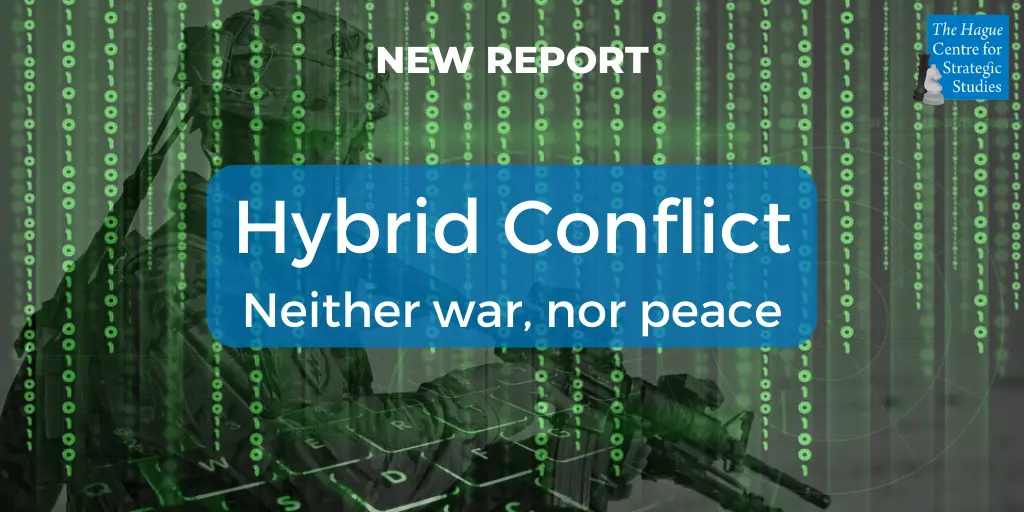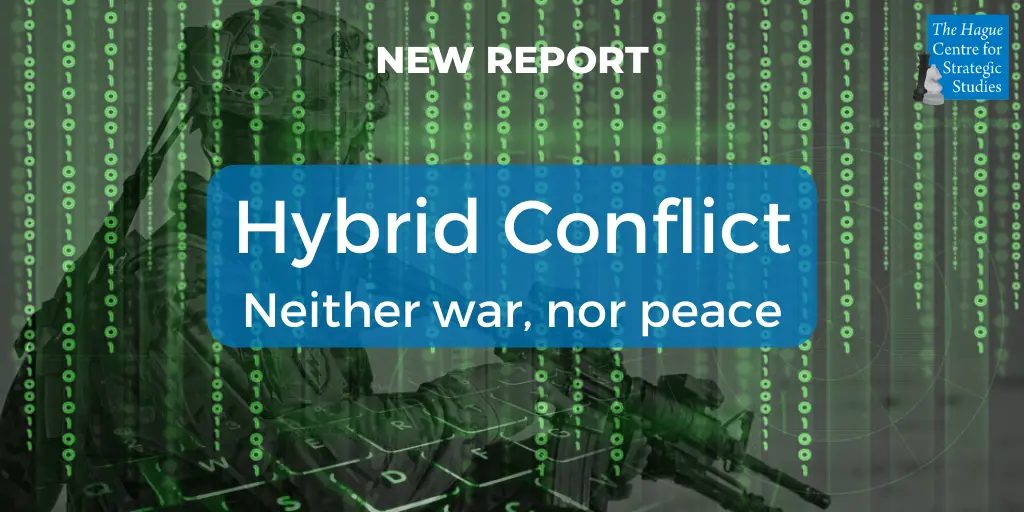New report out now! To read, click here.
What do Chinese naval intrusions into Japan’s territorial waters have in common with Russian bots that spread and amplify disinformation?
This Global Security Pulse examines trends within hybrid conflicts, understood as “conflicts between states, largely below the legal level of armed conflict, with integrated use of civilian and military means and actors, with the aim of achieving certain strategic objectives.”
States have ample reason to be concerned about hybrid threats and hybrid conflict. Although at their core hybrid tactics are tactics old as time (military posturing, spreading propaganda and the use of economic measures are well established military strategies), the availability of a diverse and sophisticated set of (technological) tools enhances the impact, reach and congruence of hybrid threats. Paired with the reluctance of states to engage in conventional war due to nuclear, economic and political deterrence, this means that hybrid conflict constitutes an increasingly desirable strategy for states to achieve their political goals.
The principal conclusion of this Pulse is that the international security environment is increasingly subject to hybrid threats, often in a subtle and pervasive way that impedes fast detection, accountability and retaliation. Hybrid threats and hybrid conflict are typified by their complexity, ambiguity, multidimensional nature and gradual impact. These characteristics pose a challenge to effective response measures and therefore to the international order.
Read the new report by Bianca Torossian here.
The authors would like to thank Jovana Perovska for her contribution to the international order section of this report.
Disclaimer: The research for and production of this report has been conducted within the PROGRESS research framework agreement. Responsibility for the contents and for the opinions expressed, rests solely with the authors and does not constitute, nor should it be construed as, an endorsement by the Netherlands Ministries of Foreign Affairs and Defense.




